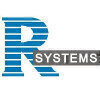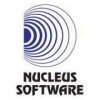Prepare for Your Silgate Solutions Interview with Real Experiences!
View interviews2 Silgate Solutions Jobs

Health Care IT Professional
Silgate Solutions
posted 3+ weeks ago
Job Description
IT Support Specialist:Provide technical support to end-users, troubleshooting hardware and software issues.Assist in the setup and maintenance of computer systems.Respond to helpdesk tickets and resolve IT-related inquiries.Network Engineer:Design, implement, and manage the organization's network infrastructure.Monitor network performance and address connectivity issues.Collaborate with IT teams to optimize network efficiency.Software Developer:Develop and maintain software applications based on business requirements.Collaborate with cross-functional teams to design and implement software solutions.Conduct code reviews and participate in testing activities.Database Administrator:Manage and optimize databases to ensure data integrity and performance.Implement backup and recovery procedures for databases.Collaborate with application developers to design efficient database structures.Cybersecurity Analyst:Monitor and analyze security alerts to identify and respond to potential threats.Implement security measures to safeguard IT systems and data.Conduct regular security assessments and audits.Systems Administrator:Administer server environments, including Windows and Linux systems.Implement system upgrades, patches, and configuration changes.Provide support for server-related issues.Requirements:Education and Experience:[Specify the educational requirements and experience level for each position.]Technical Skills:[List specific technical skills relevant to each position.]Communication Skills:Excellent communication skills, both written and verbal.Ability to collaborate effectively with cross-functional teams.Problem-Solving Skills:Strong problem-solving and troubleshooting skills.Ability to analyze complex issues and provide effective solutions.Adaptability:Ability to adapt to changing technologies and work environments.Willingness to learn and stay updated on industry trends.Benefits:[Include information about the benefits offered, such as health insurance, retirement plans, flexible work arrangements, etc.]
Employment Type: Full Time, Permanent
Read full job description
What people at Silgate Solutions are saying
What Silgate Solutions employees are saying about work life
based on 68 employees
Strict timing
Monday to Friday
No travel
Night Shift
Similar Jobs for you
Share an Interview
































